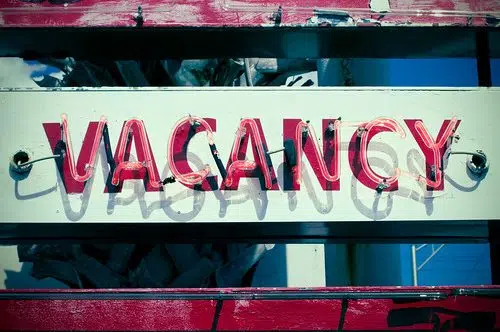Business is booming for Airbnb hosts in Regina, but hotel owners aren’t happy about it. They’re even putting “fair rules for the short-term rental industry” as their No. 1 priority for the federal election.
In the past year, Regina has had the highest growth in the world for bookings on the room rental site Airbnb. According to the site, the percentage growth in bookings in the city was up 328 per cent.
Jim Bence, president and CEO of the Saskatchewan Hotel and Hospitality Association, said that has had a detrimental effect on the hotel industry here.
“You put that many rooms in a market, it is going to have an effect,” said Bence.
He estimates hotel business in Regina is down two to three per cent. He admitted that doesn’t sound like much, but when you look at the number of hotel rooms available, that has an impact.
Bence also pointed to the effect that reduction in business has on jobs in the industry, that there may be less work available if rooms aren’t being used.
But the association’s second priority for the election talks about persistent labour supply shortages in the industry.
The problem the association has with the short-term rental industry, according to Bence, is that those properties are not taxed or regulated like a business.
“If we’re going to play in the same field, then we just want to make sure that the rules are all fair, and that they apply to everybody equally,” said Bence.
So, his association has been lobbying to have the businesses pay taxes, have them require a business licence and stop situations where an entire house or multiple units are being rented out.
Bence explained that he doesn’t have a problem when it’s a person renting out a room in the house they live in.
“Where we do have challenges is when it’s whole homes that are being rented, or multiple units — that’s when it becomes an issue,” he said. “Because then, really, that’s a commercial operation.”
There are more than 300 rentals listed on Airbnb for Regina. Many of them are just rooms in a person’s home, but there are also many which rent out an entire home or unit. Bence calls those “ghost hotels.”
According to a toolkit on the Saskatchewan association’s website, the association wants the federal government to change the excise tax to require platforms like Airbnb to charge GST, ensure it’s paying corporate income tax, issue earning information slips to hosts every year and use the association’s best practices guidelines to regulate the industry.
Some movement has been made on these issues already at a provincial level. Saskatchewan’s government changed the rules for PST this spring and has been working since early this year on having
Airbnb pay provincial sales tax. These are the same changes that had Netflix start charging PST earlier this year.
A communications person with the Ministry of Finance wouldn’t go into details on why Airbnb wasn’t already paying it, but he did say the ministry is hopeful the platform will be in compliance with the law soon as it is for similar laws in other jurisdictions.
In Regina, a report will be coming back to city council later this year on short-term rental operations like Airbnbs.
“It about understanding how they’re here and they’re taxed properly and they’re regulated properly,” said Mayor Michael Fougere.
Last year, the City of Regina said, despite more than 200 properties being listed on Airbnb, none of them had a licence from the city to do so.







